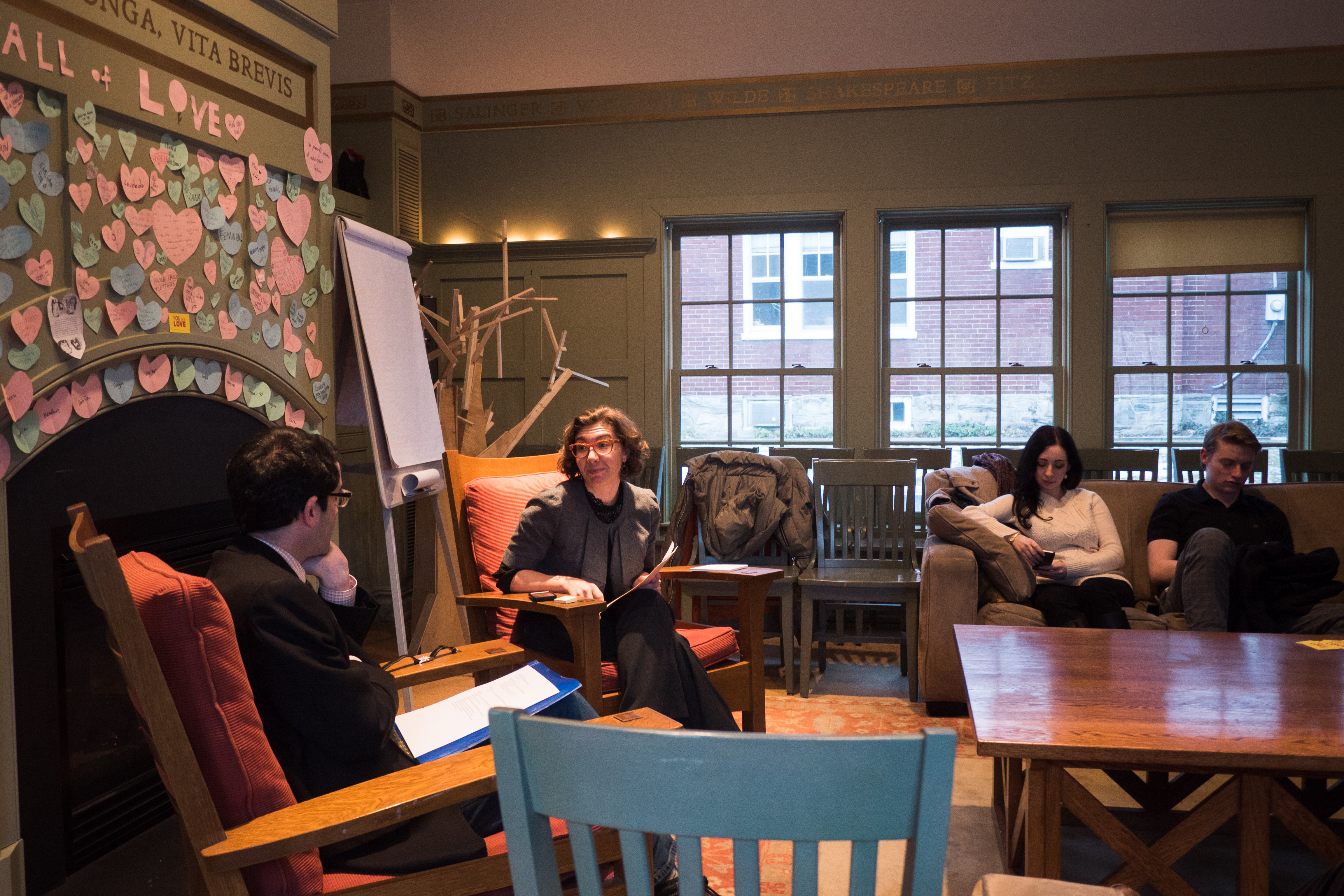By Shira Kipnees, Staff Writer||

On February 10, Rachel Anderson-Rabern, assistant professor of theatre, and Jon Stone, assistant professor of Russian and Russian studies, co-hosted a conversation about the upcoming Theatre, Dance, and Film (TDF) department production, Three Sisters, by Anton Chekhov.
“[We] decided to co-host a conversation, because we so enjoy our overlapping interests in Chekhov — his theatre, his cultural moment, his storytelling — and we wanted to share the stakes and concerns of his work, and our ongoing ideas, beyond ourselves,” said Anderson-Rabern, who also directs the play.
“We thought this was a nice way to merge our interests,” Stone said. “However, we also thought that it would be nice to do something beforehand to give people an introduction to Chekhov, a little bit of a background on the play, and a way to start some of the conversations, to encourage faculty, students, and staff to learn a little bit about it before seeing it. We each bring different perspectives to it and we each teach Chekhov in a different way.”
Both Stone and Anderson-Rabern agreed that this play and the messages behind it are still relevant today and are very relatable to F&M students today.
“There’s something that draws people to it,” Stone said. “My own inclination as to why it’s such an enduring work is because it addresses questions of families and relationships, and even those these are very rooted in the time of the play; they still have this feeling of being alive, relevant, and ongoing. Chekhov is very good at asking questions and not very good at answering them. He encourages you, the reader, to figure out the answers on your own and to interact with the text and characters.”
Anderson-Rabern echoed Stone’s sentiment as to Chekhov asking questions and leaving them up to the reader’s interpretation.
“I consider Three Sisters to have many messages; for me the play prompts a series of questions: What is family? Why do we sometimes shy away from what we want more than anything? What does violence look like, and unkindness? Love? What happens to us, and to our place in the world, as the world changes? What can we locate in our everyday lives, attentively and playfully, that reminds us of our humanity?” Anderson-Rabern said. “All these questions, to me, connect to F&M students and to our circles of communities in and beyond the college. I think often about Chekhov’s theatre as depicting generosity and empathy toward people of all sorts, and of what we as world citizens can derive from his example.”
Emily Meneghin ’15, assistant stage manager for the production, explained that she learned a lot from the play, which she said she believes questions the human spirit against boredom and purposelessness. Meneghin also explained that the play is relevant today because it asks the question of how humans find happiness around them.
“Every moment in time in past and I’m sure future as well, humans will ask what it means to find happiness around them, sometimes resolving to break rules or even literally escape,” said Meneghin.
Senior Shira Kipnees is a staff writer. Her email is skipnees@fandm.edu.